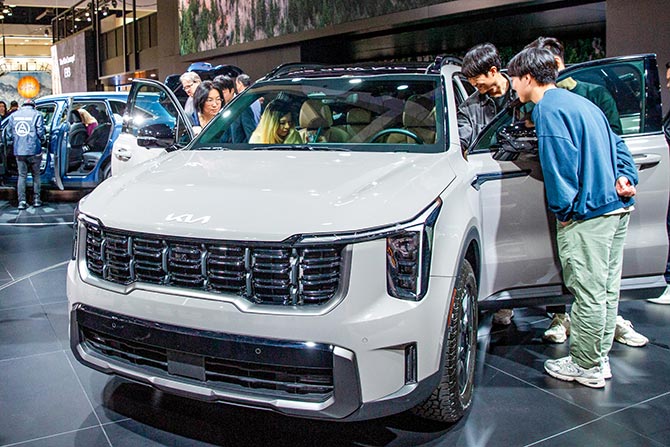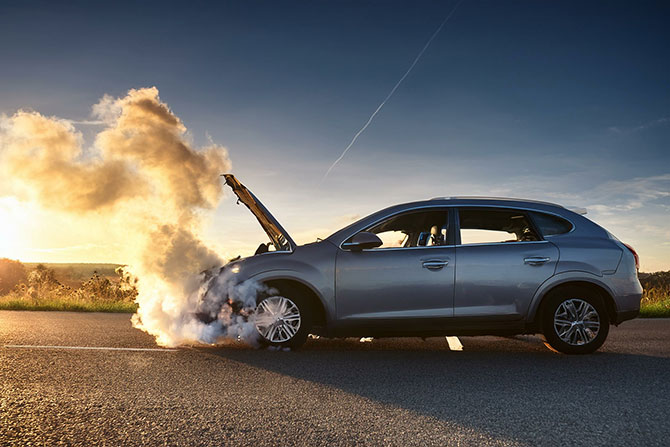The automotive world is undergoing a transformation like never before, driven by rapid advancements in technology, shifting consumer preferences and an increasing focus on sustainability. At the heart of this transformation is the electric vehicle (EV) revolution, which is changing how people perceive cars and the automotive industry. However, as the focus shifts toward electric mobility, it’s essential to remember that gas and hybrid vehicles remain crucial components of the automotive ecosystem. In this context, auto shows are more important than ever, serving as critical platforms for educating the public, showcasing innovations and fostering connections between manufacturers, consumers, dealers and the media.
The Impact of Auto Shows on Market Trends
Beyond education, auto shows have a profound impact on market trends. The buzz generated by these events can influence consumer behavior and drive demand for new technologies. When a manufacturer unveils a new electric vehicle at a major auto show, it garners significant media attention, which in turn raises public awareness and interest in the model.
For example, when Ford unveiled the Mustang Mach-E at the Los Angeles Auto Show in 2019, it marked a significant moment in the history of the Mustang brand and the EV market. The Mach-E was not just another electric vehicle; it was a bold statement that even iconic, performance-oriented brands were embracing electric mobility. The positive reception it received helped to shift perceptions of what an EV could be and played a role in accelerating the adoption of electric vehicles across a broader segment of the population.
Auto shows also allow consumers to experience new technologies firsthand. Interactive displays, test drives and virtual reality simulations give attendees a taste of what it’s like to own and drive an electric vehicle. This experiential approach is crucial because it helps to break down the barriers to adoption. Many people are hesitant to make the switch to an EV simply because they are unfamiliar with the technology. By providing a space where consumers can engage with these vehicles directly, auto shows help to build confidence and enthusiasm for electric mobility.
Similarly, auto shows offer valuable opportunities for consumers to explore the latest advancements in gas and hybrid vehicles. 71% of attendees intend to buy a new vehicle within 24 months, and their experiences at these events can significantly accelerate or influence their purchasing decisions. This highlights the importance of auto shows as not just exhibitions but as pivotal moments in the consumer journey.
The Changing Perception of Electric Vehicles
Just a decade ago, electric vehicles were often viewed with skepticism. They were seen as niche products, suitable only for consumers willing to sacrifice performance and convenience for the sake of reducing their carbon footprint. Recently, however, this perception has changed, thanks in large part to technological advancements that have addressed many of the early concerns about EVs.
Today, electric vehicles are no longer a compromise. They offer impressive performance, with many models boasting acceleration times that surpass their gasoline-powered counterparts. Battery technology has improved, resulting in longer ranges and faster charging times. Further, the infrastructure for EVs has expanded with charging stations becoming more ubiquitous across cities and along highways.
This perception shift is supported by data. According to a report from the International Council on Clean Transportation, U.S. EV sales reached over 1.4 million units in 2023, a sharp increase from the 1 million sold in 2022. This surge reflects growing consumer confidence driven by the realization that EVs are not just a viable alternative to traditional vehicles but, in some cases, the superior choice.
The Continuing Relevance of Gas and Hybrid Vehicles
While electric vehicles are at the forefront of automotive innovation, gas and hybrid vehicles remain an essential part of the industry. These vehicles offer versatility and reliability that continue to meet the needs of consumers. Gas-powered cars, with their extensive refueling infrastructure and long-established technology, still dominate the market in many regions. Meanwhile, hybrid vehicles serve as a bridge between traditional internal combustion engines and full electric powertrains, offering a practical solution for those seeking improved fuel efficiency without full reliance on an EV.
The Role of Auto Shows in the EV Revolution and Beyond
Auto shows have always played a crucial role in the automotive industry as the stage upon which manufacturers unveil their latest models, concept cars and technological innovations. However, as the industry shifts towards electric mobility, the role of auto shows has become even more significant.
One of the key reasons auto shows are more important than ever is their ability to educate the public about electric vehicles. Despite the growing interest in EVs, there is still a considerable amount of misinformation and confusion surrounding them. For many consumers, an auto show is their first opportunity to see, touch and learn about electric vehicles in a hands-on environment. They can compare different models side by side, speak with experts and gain a better understanding of what it’s like to own and operate an EV.
The impact of auto shows is underscored by recent statistics from a 2023/2024 consumer market survey conducted by the LA Auto Show, NY Auto Show and Toronto Auto Show — three of the largest and most influential auto shows in North America. The survey revealed that 74% of attendees attend to see the new vehicles and products, indicating the importance of these events in introducing consumers to the latest automotive innovations. Moreover, 82% of attendees reported being more likely to consider an EV after visiting an auto show, highlighting the significant role these events play in shaping consumer attitudes toward electric mobility.
Auto shows also provide a platform for manufacturers to address the concerns that potential buyers may have about electric vehicles. Whether it’s range anxiety, charging infrastructure or the overall cost of ownership, these events allow automakers to present the facts and dispel myths. For instance, many people are unaware that the total cost of owning an EV, including maintenance and fuel savings, is often lower than that of a traditional gasoline vehicle. Auto shows provide the perfect venue for communicating this information directly to consumers.
At the same time, auto shows play a critical role in showcasing the latest gas and hybrid vehicles. As the automotive world embraces a multi-faceted approach to mobility, these shows ensure that every type of vehicle — from fully electric to hybrid to traditional gasoline — gets the attention it deserves. 59% of attendees add exhibiting brands to their consideration set, demonstrating the influence these events have on consumer decision-making. On the flip side, 45% of attendees report a decline in their perception of absent brands, showing the potential risks for manufacturers and dealer groups representing those brands who choose not to participate.
The Future of Auto Shows in a Digital World
In the digital age, consumers can now research vehicles online, watch virtual unveilings and even configure their dream car on a manufacturer’s website. However, while digital tools are valuable, they cannot replace the unique experience of attending an auto show.
There is something irreplaceable about seeing a vehicle in person, sitting behind the wheel and experiencing its design and build quality firsthand. Auto shows offer a sensory experience that digital platforms simply cannot replicate. Moreover, they provide a social experience, allowing attendees to connect with other enthusiasts, industry experts and even the people who designed and built the vehicles on display.
Auto show attendees are a true cross-section of the cities in which they live, representing the ideal demographics for prime car buyers and showcasing unrivaled diversity. This diversity makes auto shows not only relevant but also indispensable for manufacturers looking to connect with a broad and varied audience.
As the automotive industry continues to evolve, the format of auto shows may change, but their importance will not diminish. In fact, they may become even more vital as the industry navigates the complexities of electric mobility, autonomous driving and connected vehicles. Auto shows will need to adapt to these trends, perhaps by incorporating more interactive and digital elements, but their core function as a platform for education, engagement and excitement will remain unchanged.
Conclusion
Auto shows are more than just exhibitions of the latest and greatest in automotive technology; they are essential events that shape public perception, drive market trends and foster connections within the industry. As electric vehicles become an increasingly important part of the automotive landscape, the role of auto shows will only grow in significance. However, it is equally important to recognize that gas and hybrid vehicles will continue to play a vital role in the automotive ecosystem for many years to come.
In an era of rapid change and technological advancement, auto shows are not just relevant — they are more important than ever. For manufacturers, consumers and especially dealer groups, these events are indispensable in navigating the future of mobility.
The 2024 Los Angeles Auto Shows runs for 10 consecutive days — Friday, Nov. 22 through Sunday, Dec. 1 — at the Los Angeles Convention Center and is preceded on Thursday, Nov. 21, the globally impactful media and industry day, presented by AutoMobility LA.









